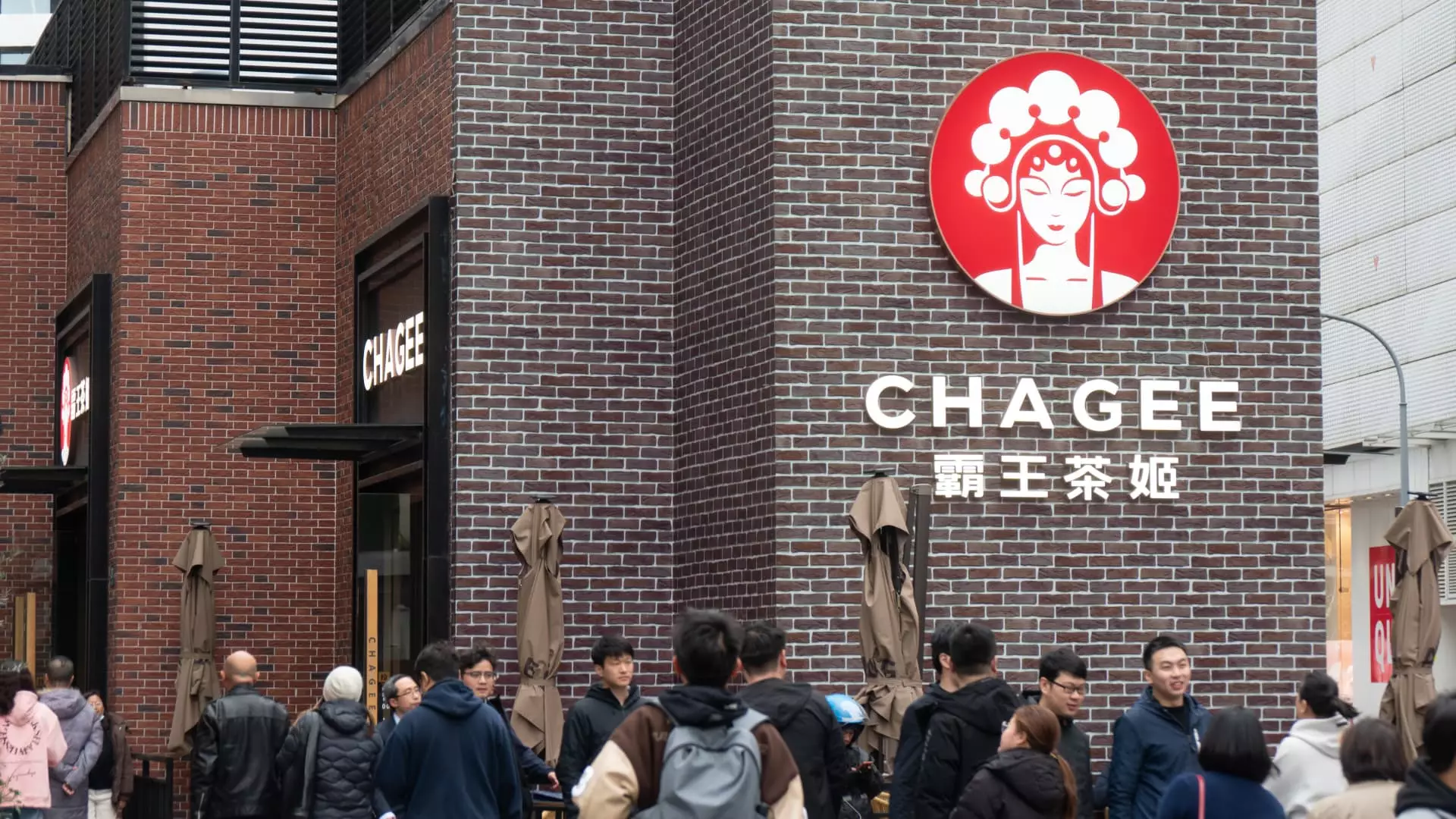In an audacious attempt to redefine the global beverage industry, the Chinese bubble tea sensation, Chagee, has formally submitted its application for a U.S. initial public offering (IPO) with plans to trade under the ticker “CHA” on the Nasdaq. This move comes at a pivotal moment as Chagee gears up to unveil its first American storefront at the prestigious Westfield Century City Mall in Los Angeles this upcoming spring. Since its inception in 2017, Chagee has burgeoned into an astonishing network of over 6,400 teahouses across Asia, establishing itself as a dominant player in a rapidly growing market. Yet, with 97% of its operations based in China, the question arises: can this brand truly navigate the complexities of the U.S. market?
Financials: A Cautionary Tale
Chagee’s reported net income of $344.5 million from an impressive $1.7 billion in revenue for 2024 undeniably demonstrates its unprecedented growth trajectory. However, financial success alone isn’t a foolproof shield against the challenges that come with entering a foreign market, especially one as scrutinized as the U.S. The specter of past corporate malfeasance looms over its ambitious IPO, particularly with the cautionary tale of Luckin Coffee, which experienced a meteoric rise only to plummet into scandal-laden failure. While Chagee aims high — with plans to serve tea lovers in 100 countries and create 300,000 jobs — such lofty aspirations might be overshadowed by a historical context that makes U.S. investors cautious of Chinese enterprises.
Political Climate and Investor Sentiments
The geopolitical landscape complicates Chagee’s aspirations significantly. Chinese-U.S. relations have soured in recent years, with increasing scrutiny on Chinese companies seeking to go public in the United States. The reduction of Chinese firms on American exchanges by 5% within a span of just a year illustrates a chilling trend. Moreover, the fate of Shein, which has redirected its IPO ambitions towards London following U.S. governmental pushback, underscores an environment where political climates can severely impact market decisions. Investors, wary of past incidents like the Luckin fiasco, might be hesitant to support another Chinese beverage brand that promises innovation yet carries the weight of corporate skepticism.
Embracing the Cultural Shift
Founder and CEO Junjie Zhang’s ambition to revolutionize tea drinking is commendable yet fraught with peril. Drawing inspiration from the success of global coffee chains, Chagee seeks to position itself as a modern staple alongside competitors such as Starbucks. Yet, the challenge lies in transcending cultural barriers. Tea, with its deep cultural roots in China, may not resonate equally in a market dominated by coffee culture. Chagee must not only offer a product but also craft a narrative that embeds itself into the American lifestyle. This venture could be viewed as a double-edged sword; while it opens a gateway for cultural exchange, it also risks alienating traditional tea drinkers who may see the brand as a diluted version of their cherished beverage.
The Road Ahead: A Critical Crossroads
As Chagee prepares to embark on this significant journey, the company stands at a crossroads where ambition meets uncertainty. The dual challenges of market saturation and political tension create a precarious environment for any nascent brand daring to take the plunge into U.S. waters. With an eye on both success and potential pitfalls, Chagee’s IPO could either herald a new era for bubble tea or serve as an emblem of hubris in the face of historical precedent. The question remains: will Chagee’s bold leap into the U.S. market indeed shape a tea renaissance, or will it falter under the weight of its aspirations?


Leave a Reply